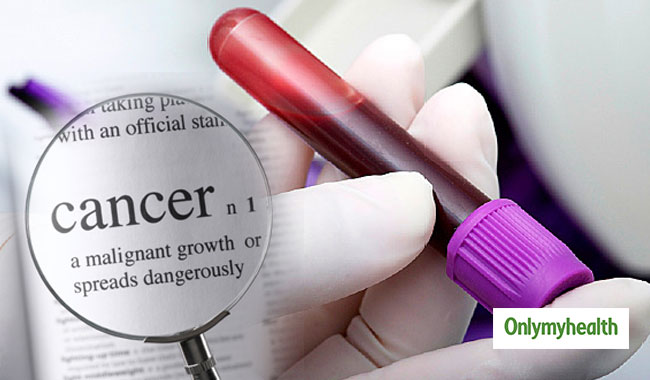
A recent research has developed a quick test which can detect all types of cancer within a few minutes. The test would be conducted from blood and biopsy tissues. The research was conducted at the University of Queensland in Australia. One of the scientists involved in the research was from Indian origin. The scientists have discovered a unique DNA nanostructure which appears to be common to all cancers.
All types of cancer have different signs and symptoms. Cancer is extremely complicated and is hard to detect in the initial stages.

The scientist developed a procedure which will find a simple signature which is distinct from healthy cells and common to all cancers. It was a very complicated procedure which was considered to be very tough.
Also read: Breast Cancer: Know 10 factors that put you at a higher risk
"This unique nano-scaled DNA signature appeared in every type of breast cancer we examined, and in other forms of cancer including prostate, colorectal and lymphoma," Abu Sina, from the University of Queensland, said.
"The levels and patterns of tiny molecules called methyl groups that decorate DNA are altered dramatically by cancer -- these methyl groups are key for cells to control which genes are turned on and off," Sina said.
The researchers have also developed a tool which can look at these patterns and the changes in the pattern at genome level together, within few minutes.
"In healthy cells, these methyl groups are spread out across the genome, but the genomes of cancer cells are essentially barren except for intense clusters of methyl groups at very specific locations," Laura Carrascosa, a professor at the University of Queensland, said.
The scientists also discovered that intense clusters of methyl groups caused cancer DNA fragments to fold into unique three-dimensional nanostructures when placed in a solution. Later these three-dimensional nanostructures can be easily separated by sticking to solid surfaces such as gold.
"We designed a simple test using gold nanoparticles that instantly change colour to determine if the 3D nanostructures of cancer DNA are present," Matt Trau, a professor of the University of Queensland, said.
Also read: Cancer is Not Deadly if Detected Early
"So we were very excited about an easy way of catching these circulating free cancer DNA signatures in blood," he added.
The research concluded that cancerous DNA molecules formed entirely different 3D nanostructures as compared to normal circulating DNA.
"This led to the creation of inexpensive and portable detection devices that could eventually be used as a diagnostic tool, possibly with a mobile phone," Trau said.
This new technology has proved to give 90 percent accurate results in tests which were conducted on 200 human cancer samples and normal DNA.
How we keep this article up to date:
We work with experts and keep a close eye on the latest in health and wellness. Whenever there is a new research or helpful information, we update our articles with accurate and useful advice.
Current Version
